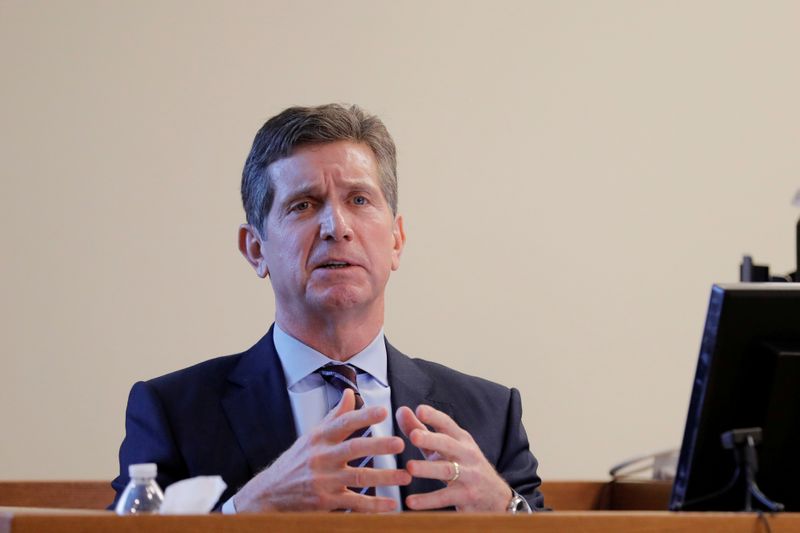By Jessica DiNapoli
(Reuters) - Proxy adviser Glass Lewis is recommending investors reject the nearly $30 million pay package for Johnson & Johnson (NYSE:JNJ) Chief Executive Alex Gorsky, arguing that the healthcare company is shielding its top executives from the legal cost of poor business decisions.
J&J is attracting investor scrutiny because it excluded from its calculation of stock awards to its top executives costs related to lawsuits claiming that the healthcare company helped fuel the nation's opioid crisis and that traces of asbestos in its talc baby powder caused cancer, Reuters reported on Monday.
Including the opioid and talc-related legal costs would have weighed on Gorsky's compensation, which totaled $29.6 million in 2020, up 17% from the previous year.
J&J said it has always set aside certain one-time costs such as litigation from calculating stock awards for executives, an approach that is common across corporate America. J&J and Gorsky did not respond to requests for comment on the Glass Lewis report, dated March 31.
Glass Lewis said in the report to investors that it is "critical of the substantial financial adjustments" to J&J's performance results and that shareholders should cast their ballots against it. A non-binding resolution on the pay packages will be up for a vote at the company's annual general meeting on April 22.
"In our opinion, the adjustments related to well-documented legal actions essentially shield executives' compensation from the detrimental impact of their decisions for the company," Glass Lewis said.
Gorsky, who became CEO in 2012, has been at the helm of J&J during the opioid abuse and addiction crisis, which according to the U.S. Centers for Disease Control and Prevention has claimed nearly 450,000 lives in the United States between 1999 and 2018. In 2019, 50,000 people died in the U.S. from opioid related overdoses, according to the National Institute of Health.
The company has denied any part in fueling the crisis. J&J is one of three companies with COVID-19 vaccines authorized for use in the United States, although it has run into some early manufacturing stumbles.
Drug distributors AmerisourceBergen (NYSE:ABC) Corp and Cardinal Health Inc (NYSE:CAH) have also come under pressure from investors on their moves to set aside the costs of agreed-to opioid settlements in determining pay for their CEOs.

Cardinal Health has said it will engage with shareholders to incorporate their views in its executive compensation plan after a minority of them revolted in November against a similar executive pay structure.